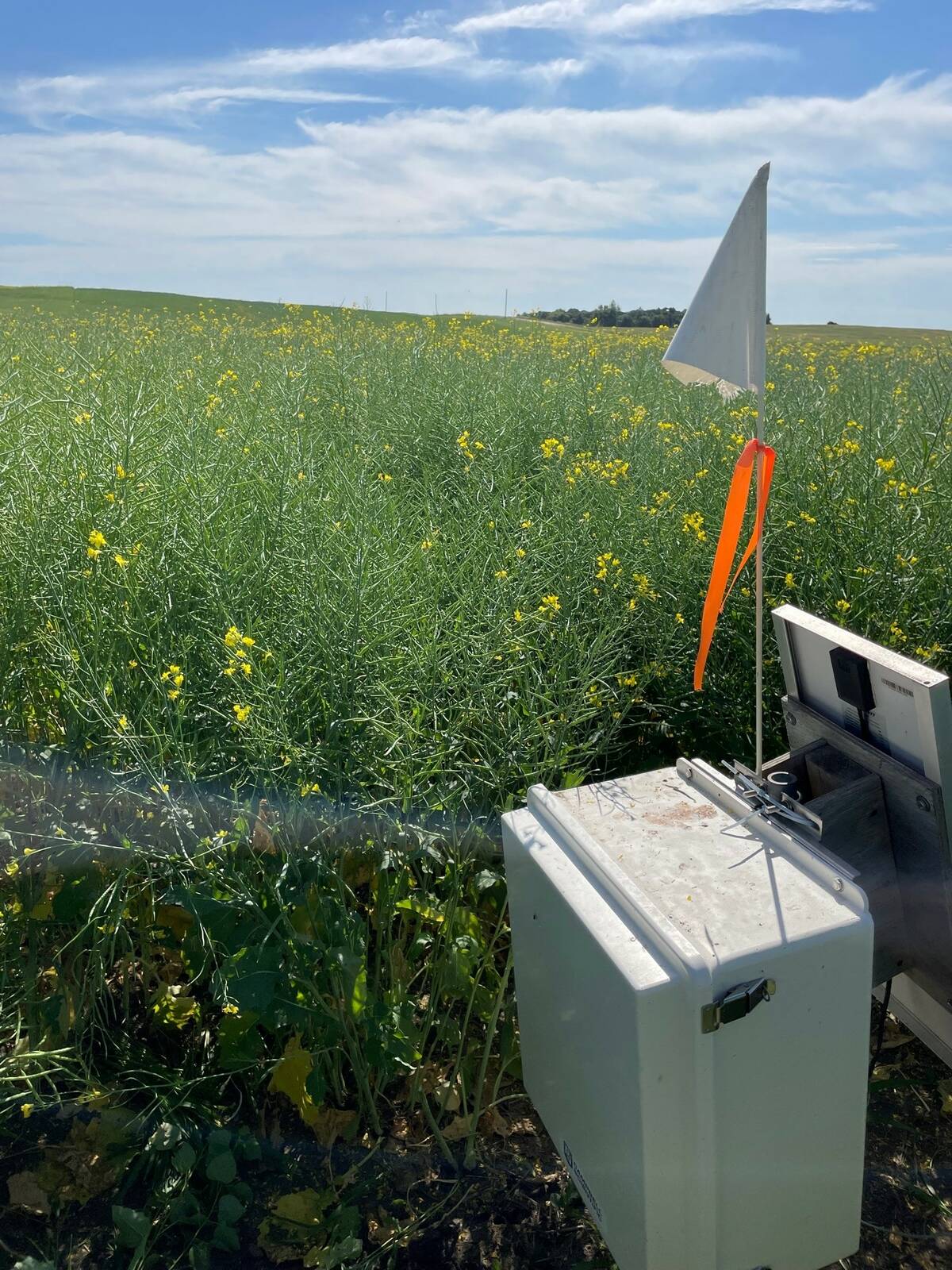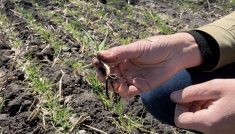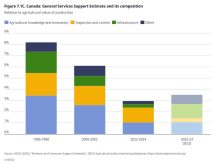Last month’s federal-provincial funding announcement for Manitoba food processors is critical for the industry, according to Food and Beverage Manitoba.
“I would say those streams of funding are absolutely crucial for stimulating growth and supporting innovation in the sector,” said executive director Michael Mikulak.
Why it matters: Access to funding could help food processing businesses ride out difficult economic challenges.
Read Also

Where’s the water? RISMA knows
National soil moisture sensor network gives real-time data for Manitoba farmers fighting more frequent drought or flood.
The two funding streams for Manitoba food processors include the Capital Infrastructure and Investment Program to fund equipment purchases and the Market Development Program to increase trade and grow markets. Both were announced April 21 under the Sustainable Canadian Agricultural Partnership (S-CAP).
Capital Infrastructure and Investments Program
The Capital Infrastructure and Investments Program offers non-repayable, cost-shared funding to small and large businesses in Manitoba’s food processing sector. Depending on the size, projects are eligible for funding from $50,000 to $2.5 million.
The program is divided into four categories:
- Capital assets, processing equipment: capital investment purchases that enhance efficiency, productivity and environmental sustainability.
- Capital assets, enterprise resource planning software: implementation of software that will increase efficiency and profitability by integrating company operations.
- Quality control capacity building: increasing quality assurance capacity to monitor and manage product safety.
- Co-packing capacity building: to help entrepreneurs scale up food businesses by increasing funding for co-packing services.
Market Development Program
The Market Development Program is aimed at improving domestic and international trade access for the sector. The program will provide a 50 per cent cost-share toward eligible expenses for a maximum per-project grant of $30,000.
This program is also divided into four categories:
- Market information and research: to help identify a product’s viability in a new market.
- Market development, planning and training: to increase export capacities and address non-tariff-related market-access barriers.
- Product commercialization: commercialization and enhancement of new and existing products.
- Domestic and international development activities: actions to expand into new markets, like business-to-business trade shows.
Good timing
Mikulak noted the benefit of both programs in light of the sector’s recent difficulties.
“I talk to members every day who are on the edge right now because of all the different pressures,” he said. “I’m worried that a lot of businesses are just going to say, ‘it’s not worth it anymore.’”
According to Farm Credit Canada’s recent food and beverage report, the national sector’s manufacturing sales increased 10.6 per cent in 2022, but margins were much tighter as manufacturers navigated increases in the price of raw materials, labour shortages and supply chain disruptions.
“This is where programs like S-CAP are vital,” Mikulak said. “They’ll help companies invest in automation, which can help with the labour shortage, and they’ll help companies invest in marketing so they can expand their operations.”
Mikulak encouraged members to use these funding streams. To help with that, his organization has launched programming to walk members through the grant-writing process.
“We’ve held a couple of grant writing workshops and offer one-on-one support targeting small and medium-sized enterprises who typically don’t have the capacity or the budgets to hire a grant writer.”
More funding needed for shared-use facilities
Mikulak said the Manitoba food processing industry could thrive, given the right mix of entrepreneurship and government support.
“Manitoba is very well positioned; we have a green electricity grid and we have an opportunity to become exporters, not only of raw commodities but also of value-added goods,” he said.
“Programs like this move in the right direction by incentivizing investments in these kinds of processing facilities. We have to take a co-ordinated approach to it. Otherwise, we are going to miss a huge opportunity for Manitoba to emerge as a global leader in this space.”
Mikulak said government support falls short on funding for shared-use facilities.
“This is something that we’re heavily involved in advocating right now,” he said.
The S-CAP announcement includes funding for co-packing initiatives, but Mikulak said it doesn’t go far enough.
“We need a food development centre, an incubator space that can act as an accelerator. Every other province has multiple of these. Manitoba has really fallen behind in that.”
Until recently, the Food Development Centre in Portage la Prairie filled that role, but in 2021, the province scaled back operations and shifted focus away from helping small processors scale up their operations and toward research and product innovation.
According to Mikulak, the sector was left with a gap.
“We call it the missing middle,” he said. “I think the province is starting to realize that we’ve kind of underinvested in that.”
















